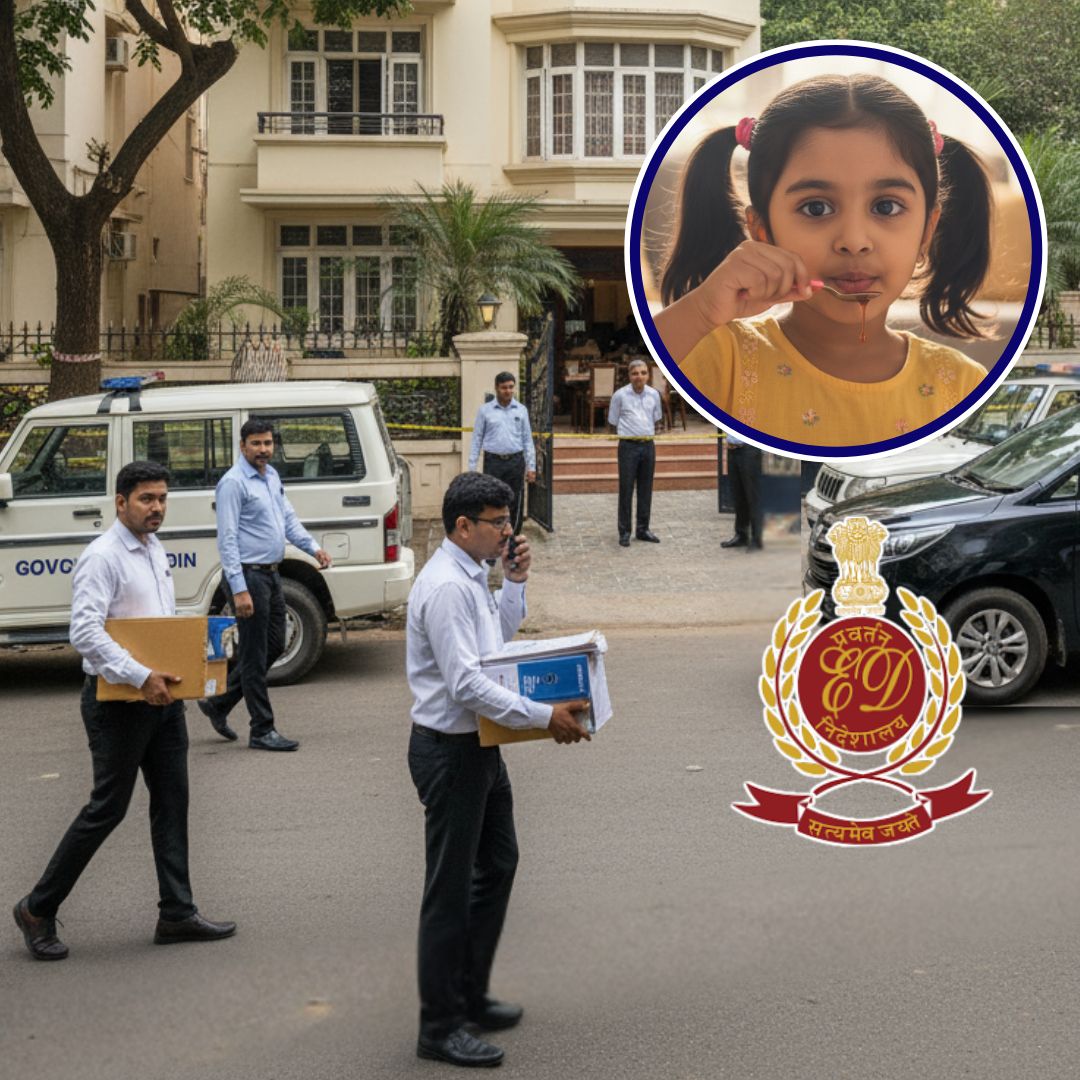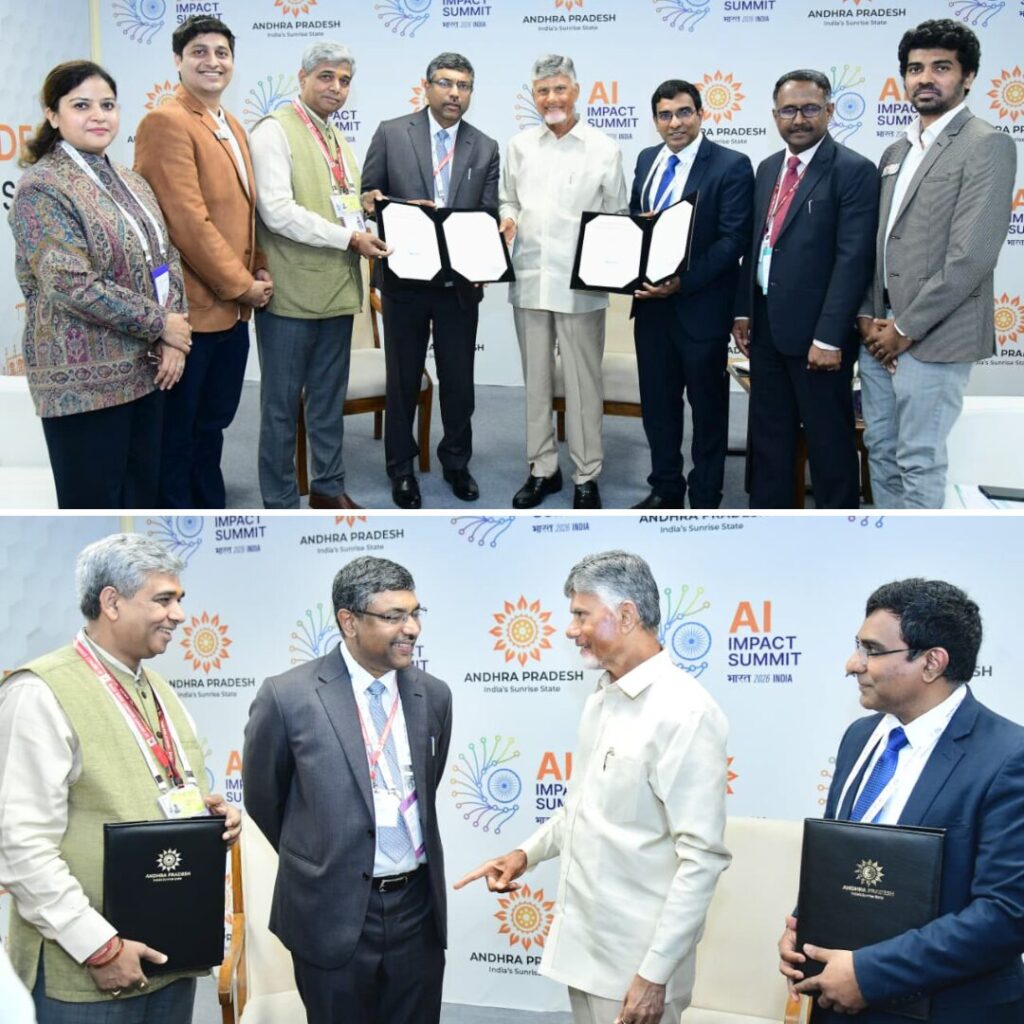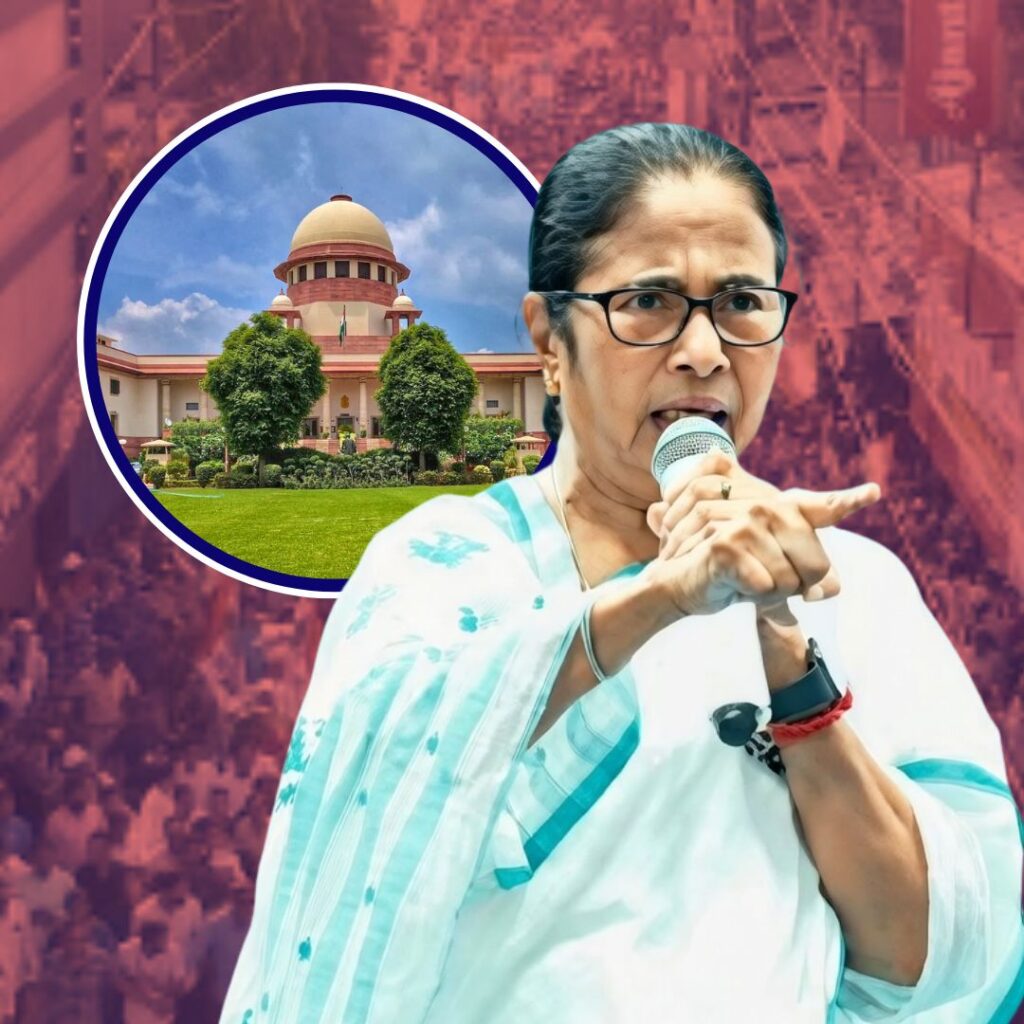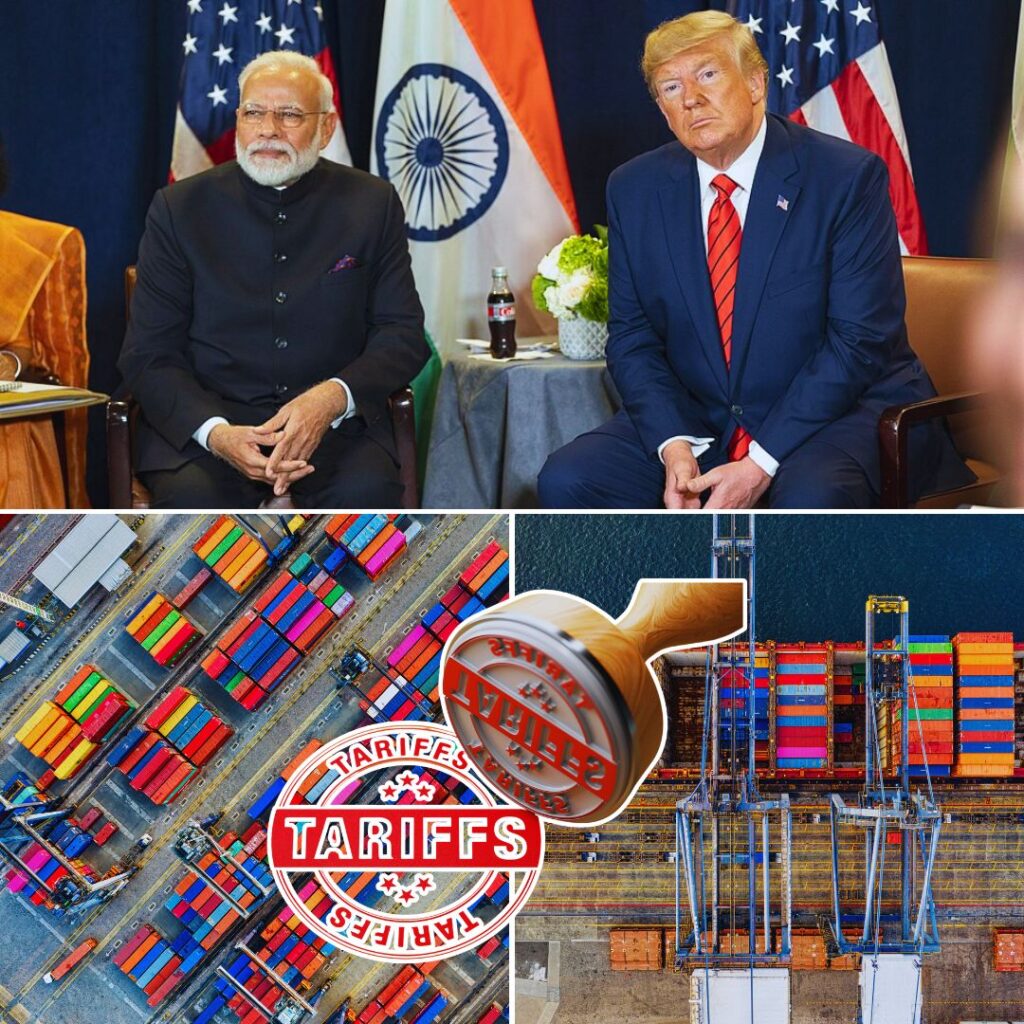On Monday, the Enforcement Directorate (ED) launched coordinated raids at seven locations across Chennai, including the homes of senior Tamil Nadu drug control officials, as part of a money laundering investigation into the “killer” Coldrif cough syrup case which claimed the lives of at least 22 children.
The operation targets Sreesan Pharma, the manufacturer of the toxic syrup, and regulatory authorities, focusing on allegations of corruption, regulatory negligence, and the illegal profits made from the sale of adulterated drugs.
Details of the ED Crackdown
The ED, acting under the Prevention of Money Laundering Act (PMLA), searched the Chennai residences of Sreesan Pharma owner G Ranganathan and offices linked to him, as well as top officials of the Tamil Nadu Food and Drug Control Department.
The raids follow the arrest of Ranganathan and suspension of key drug control staff, including Director Deepa and Joint Director Karthikeyan, over allegations of failing to conduct inspections and granting licences despite repeated safety violations.
ED officials are also probing possible illegal transactions and bribes that allowed the tainted syrup to be produced and sold.
Background: The Coldrif Cough Syrup Tragedy
Sreesan Pharma’s Coldrif syrup, contaminated with lethal levels of diethylene glycol, a toxic industrial solvent, resulted in acute kidney failure and the deaths of 22 children under five, mostly in Madhya Pradesh’s Chhindwara district.
The revelation of regulatory lapses by both company and government authorities led to the suspension of licences, criminal charges, and the involvement of the Central Drugs Standard Control Organisation (CDSCO).
Critics highlight the absence of mandatory checks over two years and uncovered a bribery nexus within the licensing process, expanding the investigation beyond product safety.
The Logical Indian’s Perspective
This tragic case exposes glaring gaps in drug regulation and the devastating consequences of corruption within public health systems. It is essential for all stakeholders to prioritise transparency, vigilant supervision, and swift justice to prevent such incidents and restore public trust.











